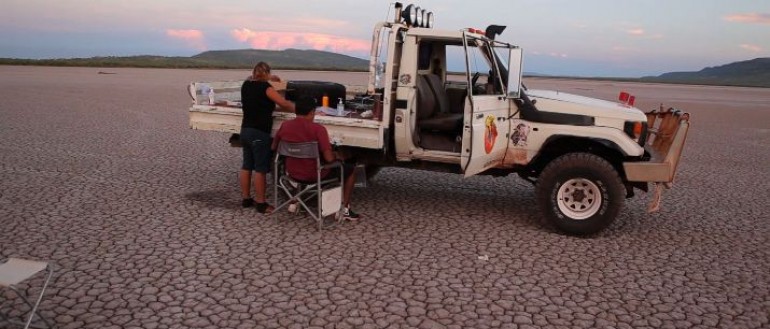Making Sense and Informing Action: Renal Research Knowledge Translation and Exchange with Aboriginal People, Policy Makers and Service Providers
Funders:
- Central Australia Academic Health Science Network (CAAHSN)
Collaborators:
- NPY Women's Council
- Aboriiginal Medical Services Alliance Northern Territory (AMSANT)
- Central Australian Health Service (CAHS)
- Purple House
- NTG – Departments of Health, Education, Local Government, Housing and Community Development
- Australian and New Zealand Dialysis and Transplant Registry
- Ernst and Young
Aims:
- To build on the relationships and work of the Dialysis Models of Care Partnership to engage Aboriginal renal patients and community members, service providers and policy makers in research knowledge translation regarding the health, social and financial impact of alternative models of dialysis delivery for Indigenous Australians from remote communities.
- To collaboratively develop value for money rubrics for the different models of dialysis care in the NT that bring together qualitative and quantitative data collected through the Dialysis Models of Care Partnership project to inform policy and practice decision-making relating to the implementation of the new Medicare Item for dialysis treatments in remote communities.
Summary:
This project has been developed in direct response to requests from the lead Aboriginal community-based researchers, who are Board Directors of NPY Women's Council and Purple House.
Indigenous Australians in remote communities experience the heaviest burden of end-stage kidney disease (ESKD). In the Northern Territory (NT), more than 1 in 50 Indigenous adults require maintenance dialysis for ESKD. In Central Australia, more than 300 patients currently require dialysis three times per week. For patients from very remote communities, taking up dialysis has necessitated relocation to a regional or urban centre. While the dominant model of dialysis treatment in the NT is provision of dialysis in the major urban centres, an increasing number of remote communities are establishing dialysis units in their communities. This model is likely to gain further momentum following the introduction of a new MBS item, from November 2018, to provide funding for the delivery of dialysis by nurses, Aboriginal and Torres Strait Islander health practitioners and Aboriginal health workers in a primary care setting in remote areas. This initiative, which was a direct result of the findings from the Dialysis Models of Care Partnership project and strongly supported by the renal and Aboriginal health community, has the potential to fundamentally improve access to essential healthcare.
The Dialysis Models of Care Partnership project brings together health researchers, policy makers, clinicians, service providers and Aboriginal renal patients, and has collected considerable qualitative, cost, hospital and health data. This proposed project will build on the existing relationships in the Dialysis Models of Care Partnership responding to a request from the Aboriginal community-based researchers to engage with stakeholders including Aboriginal renal patients and community members to inform their communities about understandings of the social and economic costs of dialysis. Thus leading to decision-making shaped by community understanding and perspectives in relation to establishing community-based dialysis.
Chief investigator:
Project managers:
- Gillian Gorham - program manager, Renal Health
- Samantha Togni - senior research officer
For more information contact Samantha Togni via email
Project dates:
The project commenced in March 2021 and is due to be completed in March 2022.

